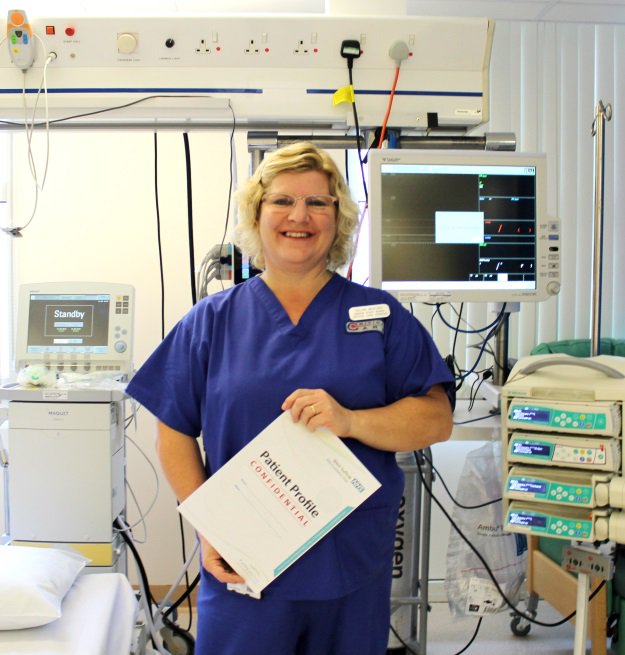 Helen Whiting works on the Critical Care Unit at West Suffolk NHS Foundation Trust.
Helen Whiting works on the Critical Care Unit at West Suffolk NHS Foundation Trust.She identified a gap in the documentation available within the Critical Care Unit and created a Patient Profile Form to help provide more patient-centred care.
The Profile is a simple paper document that requires no additional work for the nursing team and patients and families/carers need minimal instructions to complete.
Helen says “I wanted to find a way of getting the personal information we need about patients to help provide more compassionate and patient-centred care, without creating additional work for staff. I developed a confidential form for patients or their families to complete on admission. It’s low-tech, quick to complete and read. It belongs to the patient and they can take it with them when they’re discharged to use in other settings. It’s a great way to empower patients and helps normalise things in a high pressured and invasive environment. I love seeing it used as a springboard for conversations with stressed relatives and patients as it seems to reduce the anxiety levels when the person is normalised. We need to know what patients are scared of, what time they prefer to go to sleep, whether they’re frightened of hospitals and so much more. Many patients aren’t in a position to give us this information themselves, but being cared for by health professionals armed with this kind of knowledge could transform their hospital experience”
The Patient profile has been used in the Critical Care Unit for the past three years and is now being added to ‘My Care Wishes’ folders used in the Community and which will follow the patient from community to acute care and back again, so all professionals involved in the patients’ care can see at a glance what their preferences, fears and anxieties are.
A survey undertaken and completed by 39 out of 49 staff revealed 100% agreement that the profile was easy to complete for patients and relatives, 95% agreed the profile requires minimal instruction by nurses for families or patients to complete and 79% agreed it had helped to initiate/improve conversations with patients.
‘I think this is particularly useful in this area of work, where often we do not have the ability to get to know our patients personalities well, be it due to severity of illness/effects of sedation or just time. Knowing what a patient is like when well, what is important to them, what stresses them and how they communicate is key to facilitating their recovery. It is also useful when making and discussing difficult decisions, e.g., regarding ceiling of treatment or withdrawal of support. The Profile allows us to appreciate our patients as people and understand the implications of these decisions on the individual, even when they are unable to tell us themselves. Great work!’ (Doctor, ITU/Anaesthetics)

